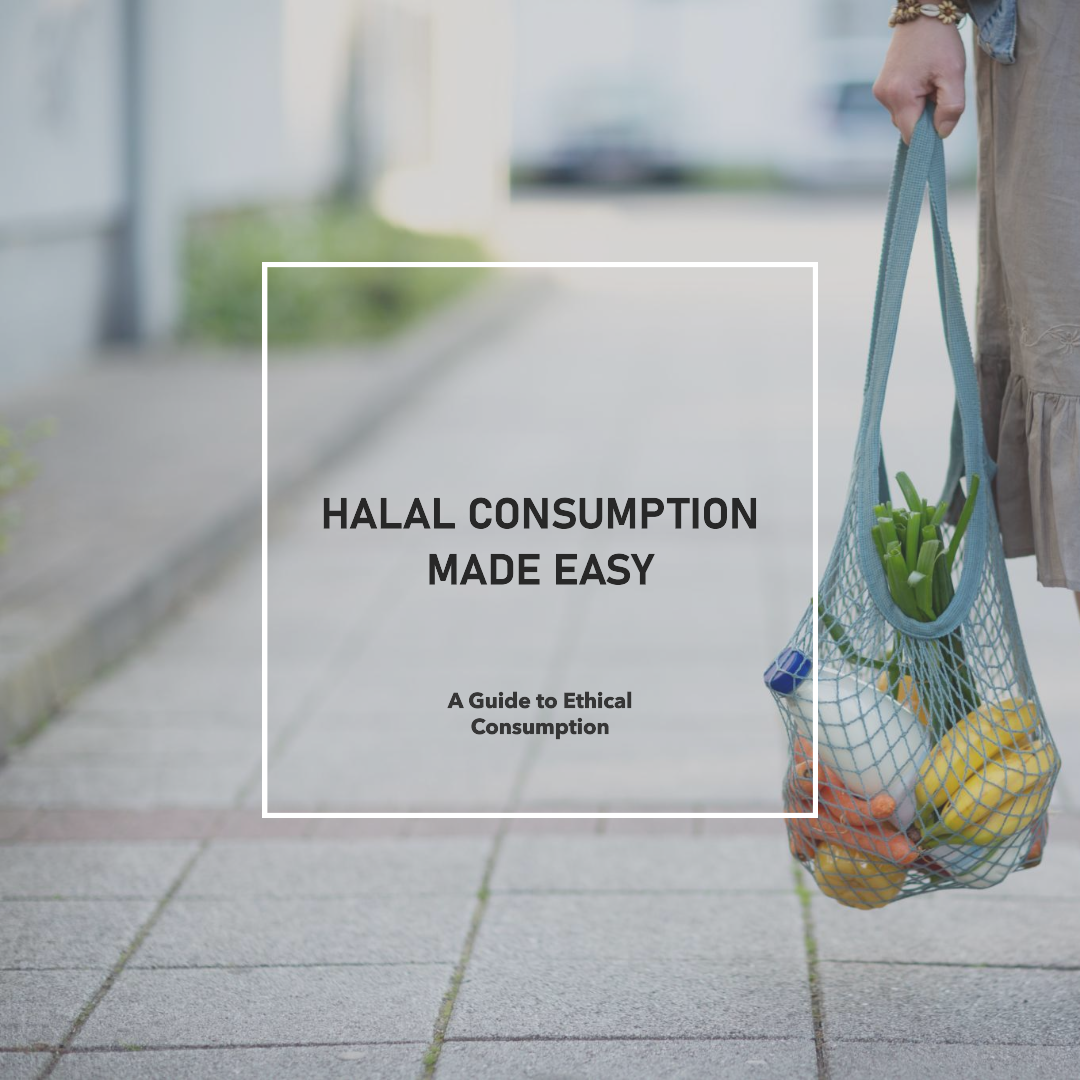In today’s world, ethical consumption is gaining momentum as consumers become more aware of the impact their purchasing decisions have on society, the environment, and the economy. For Muslims, ethical consumption aligns closely with the principles of Halal, which goes beyond dietary laws to encompass all aspects of life. This article explores the concept of ethical consumption from a Halal perspective, highlighting its significance, principles, and practical applications.
Understanding Halal and Ethical Consumption
Halal, an Arabic term meaning “permissible” or “lawful,” extends beyond the realm of food to include all actions and products deemed acceptable under Islamic law. Ethical consumption, on the other hand, involves making purchasing decisions that are socially responsible, environmentally friendly, and economically fair.
Quranic Reference:
"O mankind, eat from whatever is on earth [that is] lawful and good and do not follow the footsteps of Satan. Indeed, he is to you a clear enemy." (Quran 2:168)
Key Principles of Ethical Consumption in Halal
- Purity and Cleanliness (Tayyib)
- Definition: Tayyib refers to that which is pure, wholesome, and beneficial. It complements the concept of Halal, emphasizing the importance of consuming products that are not only permissible but also good for health and well-being.
- Example: Choosing organic and natural foods free from harmful additives and chemicals aligns with the principle of Tayyib.
- Fair Trade and Justice
- Definition: Islam emphasizes justice and fairness in all transactions. This includes ensuring that workers are treated fairly, paid justly, and work in safe conditions.
- Example: Purchasing fair-trade products such as coffee, chocolate, and clothing ensures that farmers and workers receive fair compensation and work under humane conditions.
- Environmental Stewardship
- Definition: Islam encourages the preservation and protection of the environment. Ethical consumption from a Halal perspective includes choosing products and practices that minimize environmental impact.
- Example: Opting for sustainable and eco-friendly products, reducing waste, and supporting businesses that use environmentally-friendly practices.
Quranic Reference:
"And do not commit abuse on the earth, spreading corruption." (Quran 2:60)
- Animal Welfare
- Definition: Halal laws include specific guidelines for the humane treatment and slaughter of animals. Ethical consumption extends this concern for animal welfare to other aspects of production.
- Example: Supporting farms and brands that ensure humane treatment of animals, including free-range and pasture-raised options.
Practical Applications of Ethical Consumption in Halal

- Food Choices
- Halal Certification: Ensure that all food products are certified Halal by recognized authorities.
- Tayyib Products: Choose organic, non-GMO, and minimally processed foods that promote health and well-being.
- Clothing and Fashion
- Modest Fashion: Support brands that offer modest clothing options adhering to Islamic dress codes.
- Ethical Brands: Choose clothing brands that ensure fair wages, safe working conditions, and environmentally sustainable practices.
- Finance and Investments
- Islamic Finance: Engage in financial transactions and investments that comply with Shariah law, avoiding interest (Riba) and unethical practices.
- Socially Responsible Investments: Invest in companies that prioritize social responsibility, environmental sustainability, and ethical governance.
- Everyday Products
- Personal Care and Cosmetics: Select Halal-certified cosmetics and personal care products free from harmful chemicals and not tested on animals.
- Household Items: Choose eco-friendly and sustainable household products that align with the principles of cleanliness and environmental stewardship.
Summary
Ethical consumption from a Halal perspective involves making mindful and responsible choices that reflect Islamic values of purity, justice, and environmental stewardship. By embracing these principles in our daily lives, we not only fulfill our religious obligations but also contribute to a more just, sustainable, and compassionate world.
Halal Ethical Consumption FAQs
1. What does ethical consumption mean in the context of Halal?
Ethical consumption in the context of Halal means making purchasing decisions that are permissible under Islamic law and are also socially responsible, environmentally friendly, and economically fair.
2. How does Halal certification ensure ethical consumption?
Halal certification ensures that products meet Islamic dietary laws and guidelines, including the humane treatment of animals, the purity of ingredients, and adherence to ethical business practices.
3. Can ethical consumption impact my health?
Yes, choosing Tayyib products, which are pure and wholesome, can positively impact your health by reducing exposure to harmful chemicals and ensuring the consumption of nutritious foods.
4. How can I find Halal-certified and ethical products?
You can find Halal-certified and ethical products by looking for certification labels from recognized authorities, using apps like HalalTrip and Muslim Pro, and supporting brands known for their ethical practices.
5. What are some examples of ethical consumption in daily life?
Examples include buying fair-trade coffee and chocolate, choosing organic and Halal-certified foods, supporting modest and ethical fashion brands, and using eco-friendly household products.
Further reading …
- Halal Certification: Its Importance and Process
- The Future of Halal Food: Innovations and Trends
- The Science Behind Halal: Health Benefits and Guidelines


